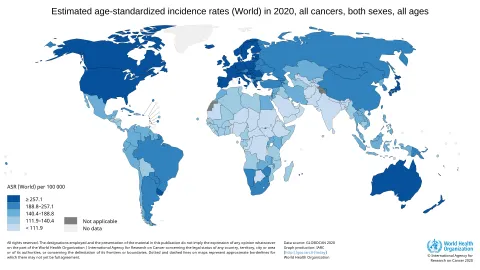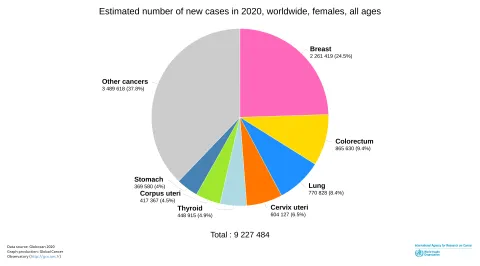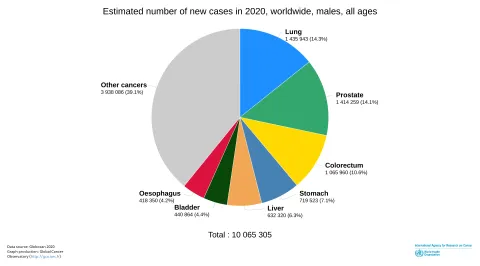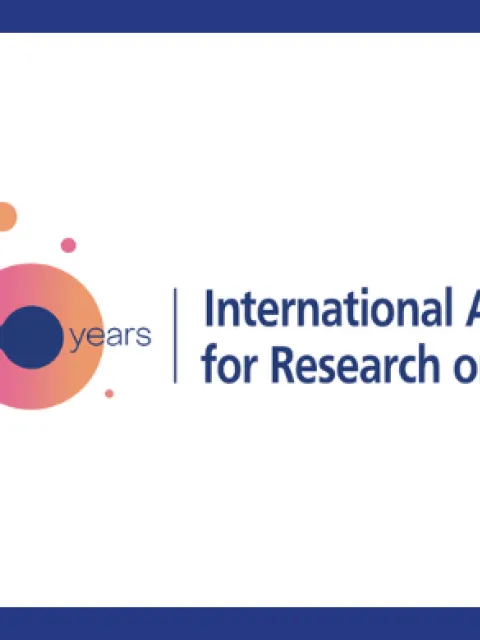GLOBOCAN 2020: New Global Cancer Data
UPDATE: IARC has released the updated Globocan 2022 Global cancer data. Visit the new article here.

The International Agency for Research on Cancer (IARC) estimates that globally, 1 in 5 people develop cancer during their lifetime, and 1 in 8 men and 1 in 11 women die from the disease. These new estimates suggest that more than 50 million people are living within five years of a past cancer diagnosis. Ageing populations globally and socio-economic risk factors remain among the primary factors driving this increase.
Breast cancer represents 1 in 4 cancers diagnosed among women globally. Colorectal, lung, cervical, and thyroid cancers are also common among women.
GLOBOCAN 2022 is now available
IARC released on 01 February 2024 new estimates on the global cancer burden, indicating 20 million new cancer cases and 9.7 million deaths globally, with lung and breast cancer being most common.


Lung cancer and prostate cancer are the most common among men, together accounting for nearly one-third of all male cancers.

Inequity in health care between higher and lower resourced settings
For the 1st time, female breast cancer has become the most commonly diagnosed cancer, surpassing lung cancer, in particular due to high prevalence in low- and middle-income countries (LMICs). Lung cancer remains the leading cause of cancer deaths, not only in many LMICs but also in most higher-income regions like North America, Europe and Australia.
There continue to be significant disparities between higher and lower-income countries, with GLOBOCAN 2020 predicting that countries classified with "Low or Medium Human Development Index (HDI) "will have the greatest relative increases in #cancer incidence by 2040.
The need for more reliable national cancer data
IARC draws attention to a situation of limited data in certain countries and emphasises the need for better cancer data registries:
"Caution must be exercised when interpreting these estimates, given the limited quality and coverage of cancer data worldwide at present, particularly in low- and middle-income countries. IARC’s approach is not only to evaluate, compile, and use the data from the Agency’s collaborators in these estimates but also to work alongside national staff to improve local data quality, registry coverage, and analytical capacity. The clear need for investment in population-based cancer registration in low- and middle-income countries led to the launch of the Global Initiative for Cancer Registry Development (GICR), coordinated by IARC. The goal of the GICR is to inform cancer control through defined improvements in the coverage, quality, and use of population-based cancer registration data worldwide."
For instance, the International Journal of Cancer reports in an article, "Progress, challenges and ways forward supporting cancer surveillance in Latin America", that less than 3% and 10% of the respective populations of Central America and South America are covered by high‐quality cancer registries.
Effective National Cancer Control Plans, a primary tool in the fight against cancer, rely on solid data registries. For more information on the IARC Regional Hubs for Cancer Registration, please visit the GICR webpage.
Last update
Wednesday 06 March 2024




